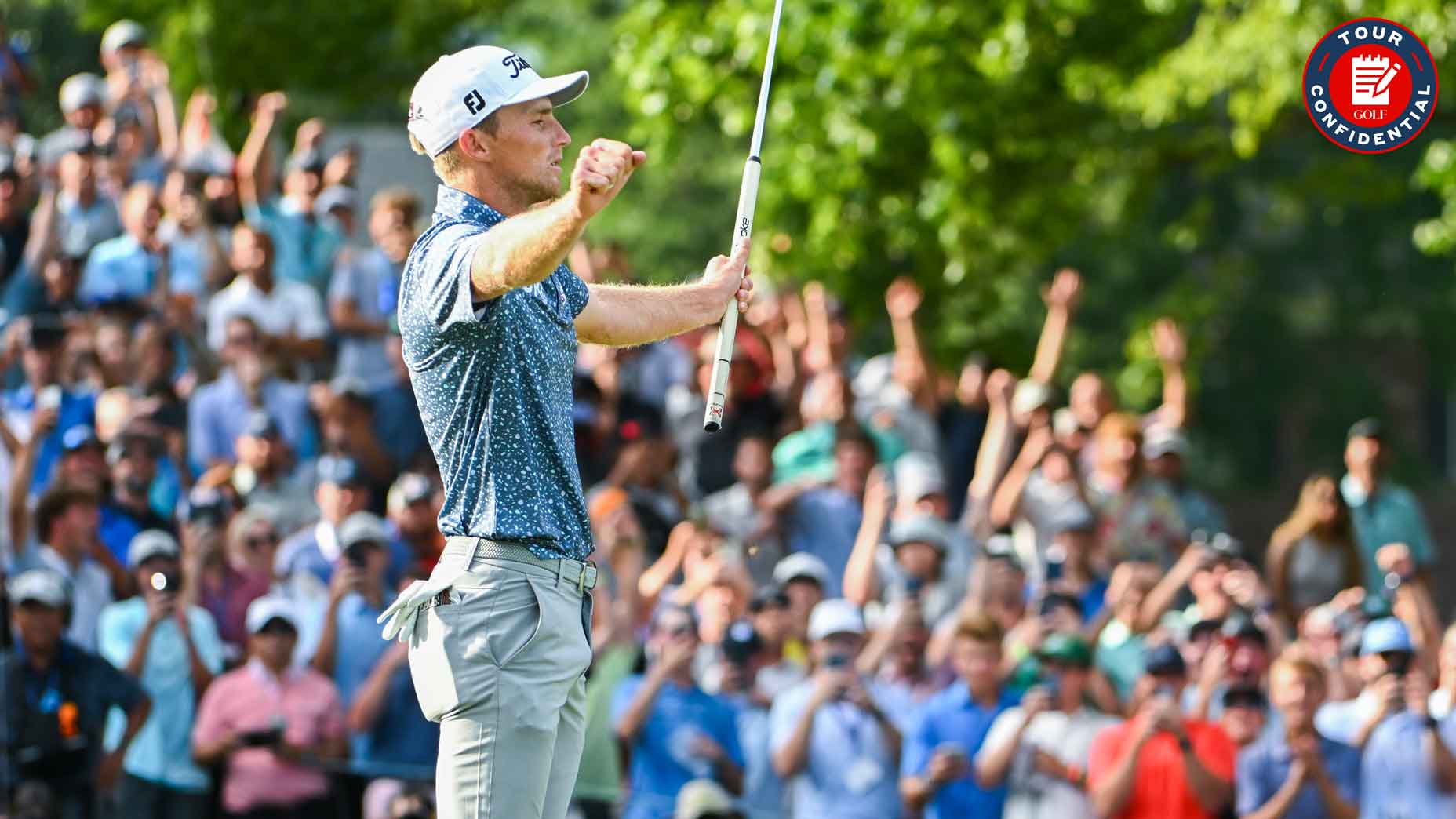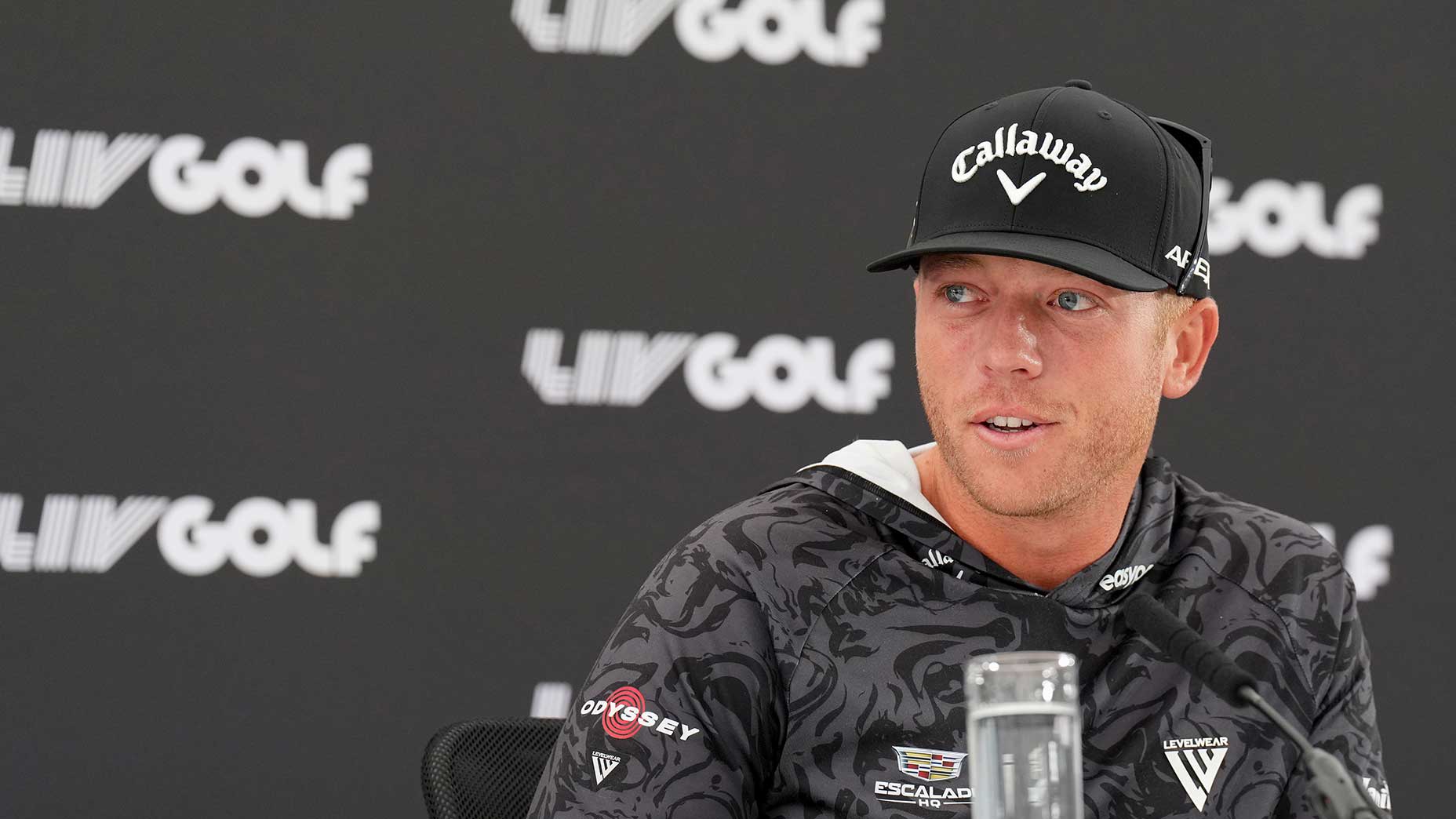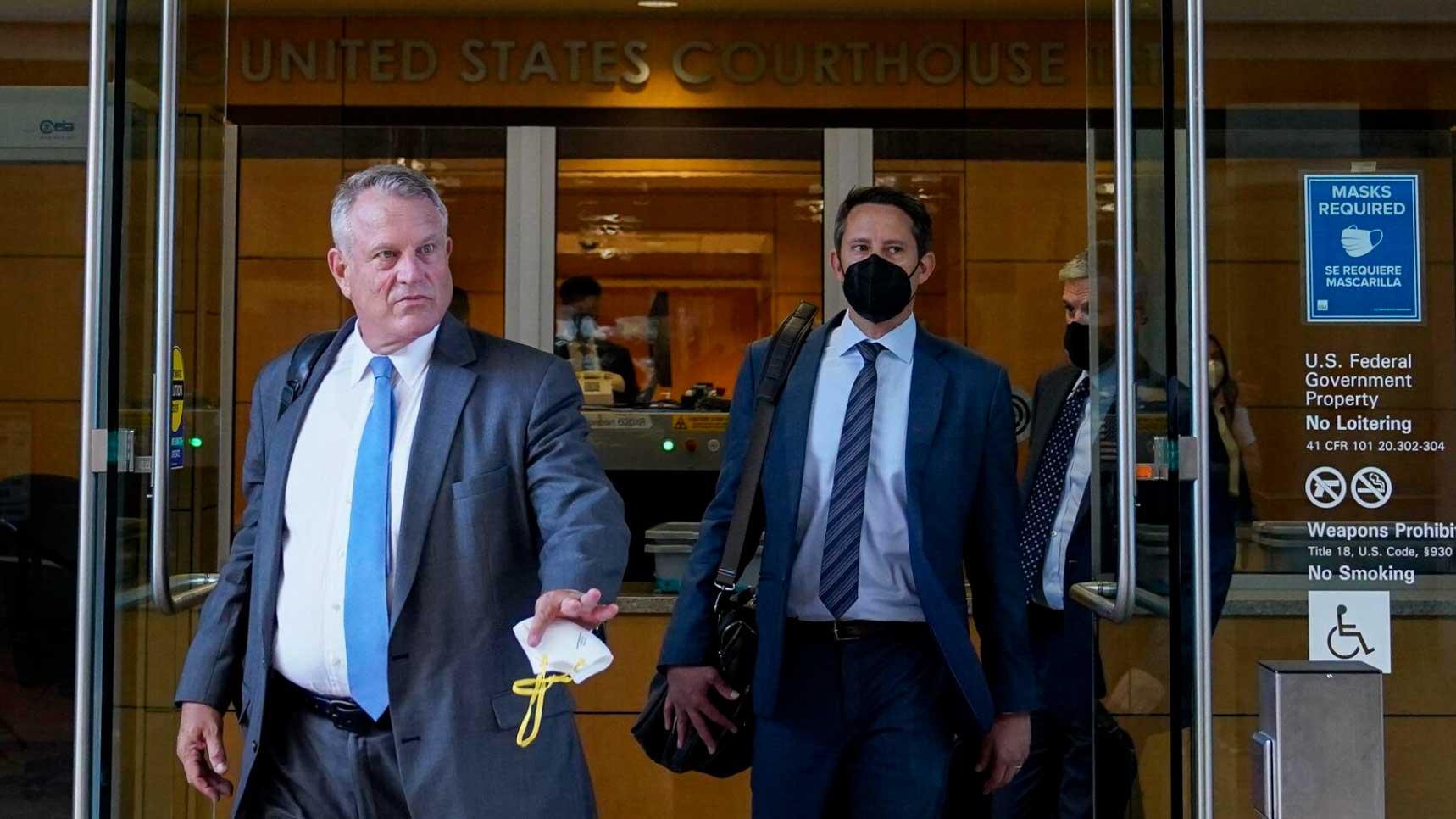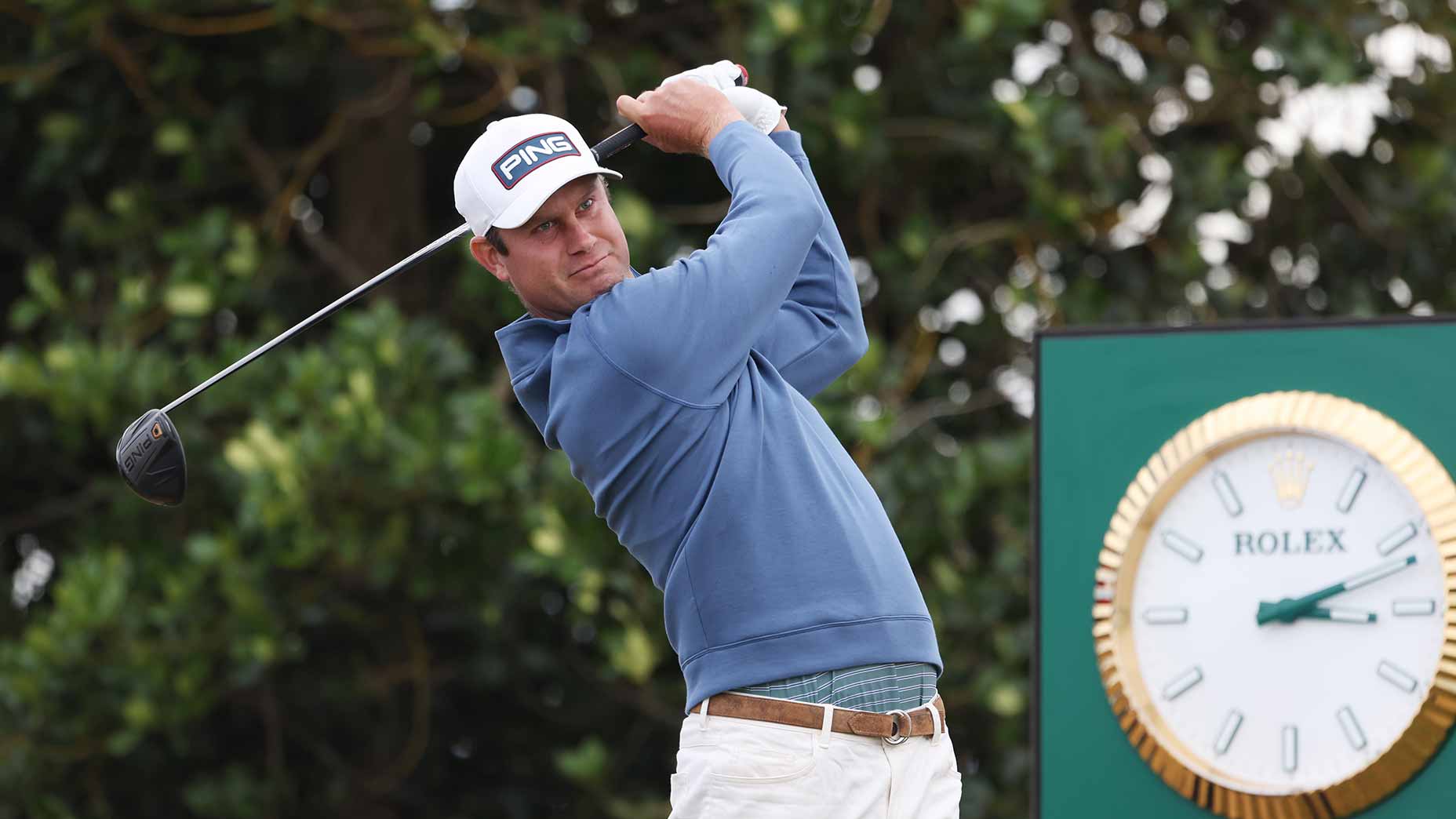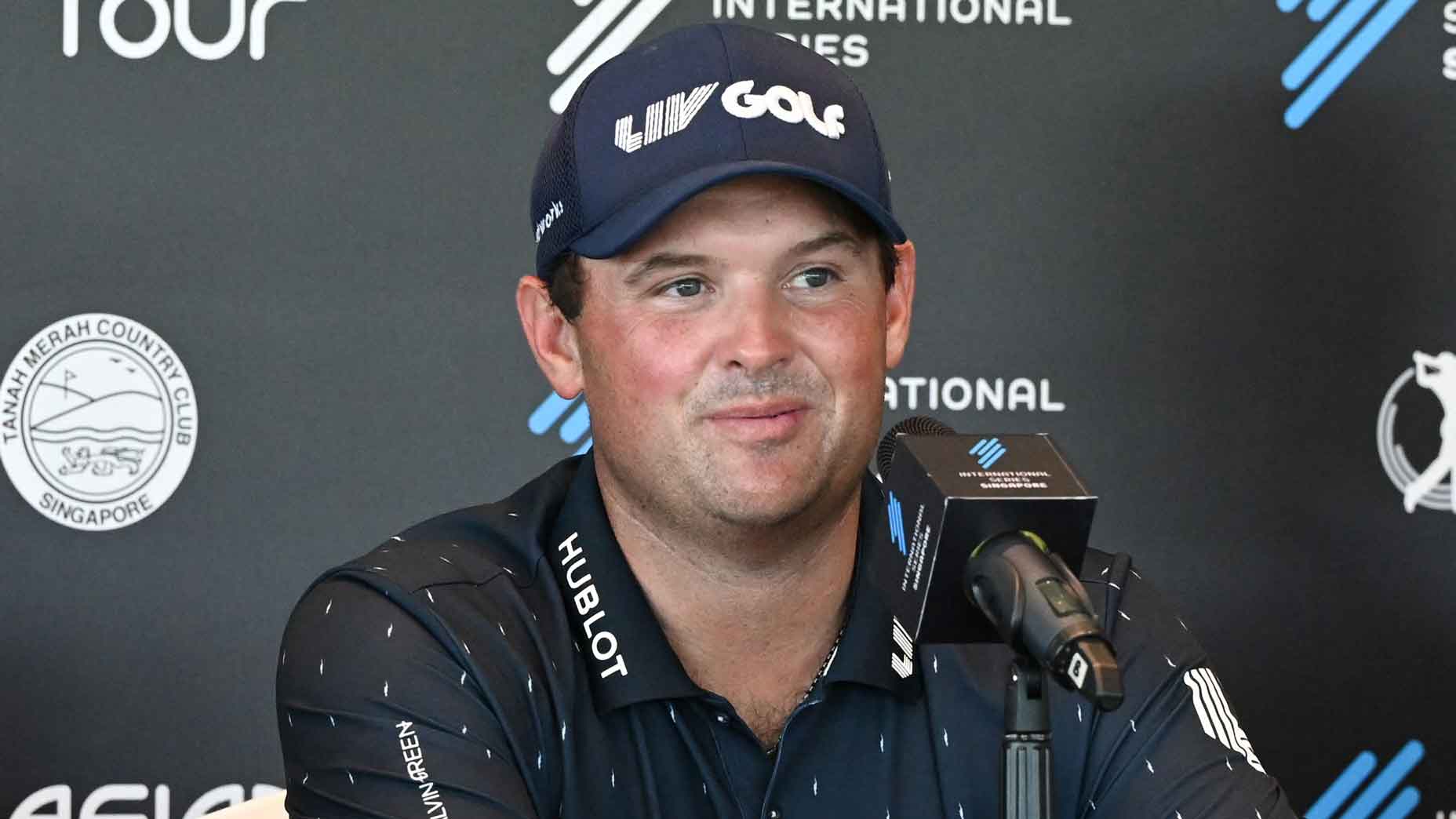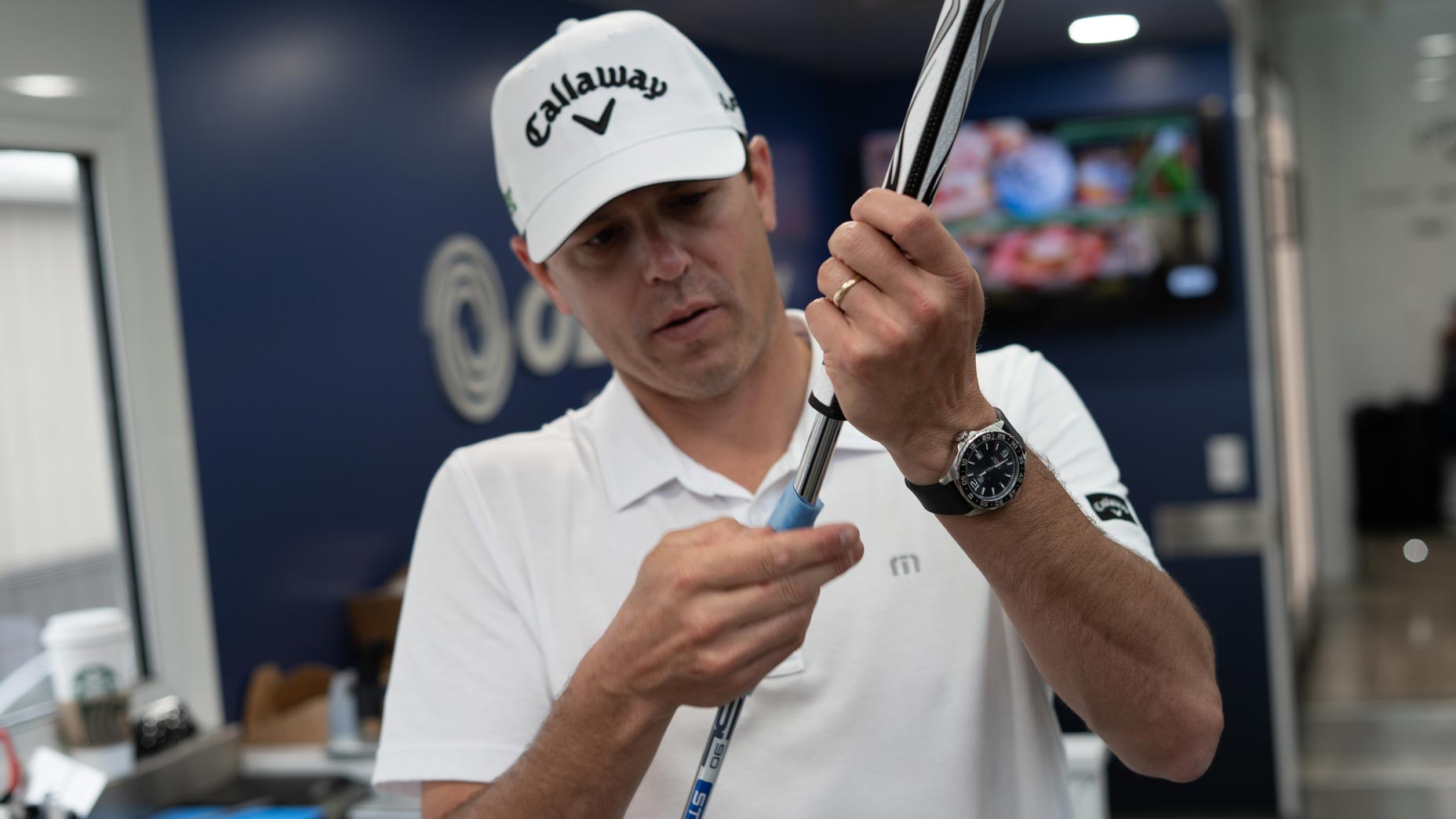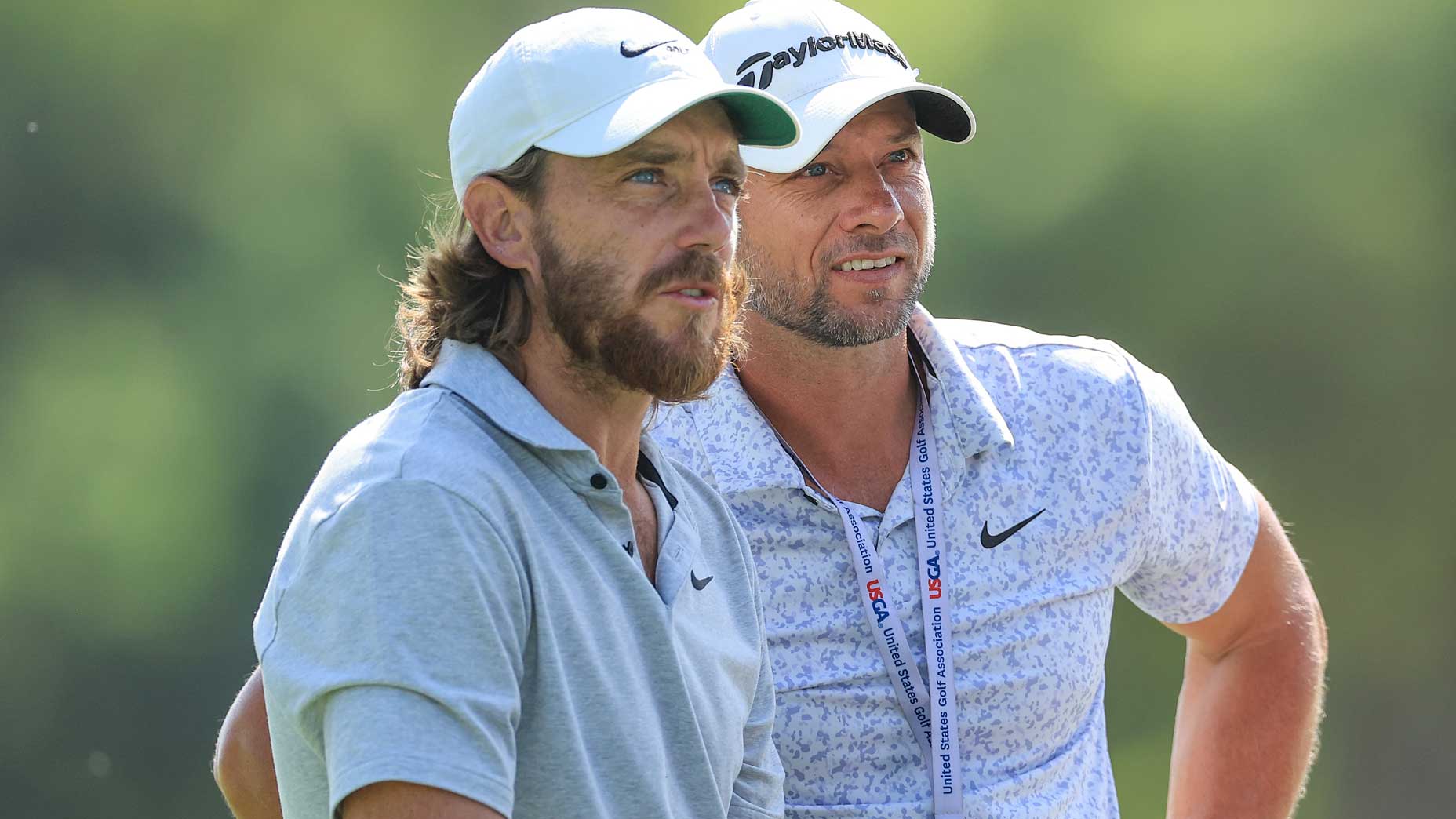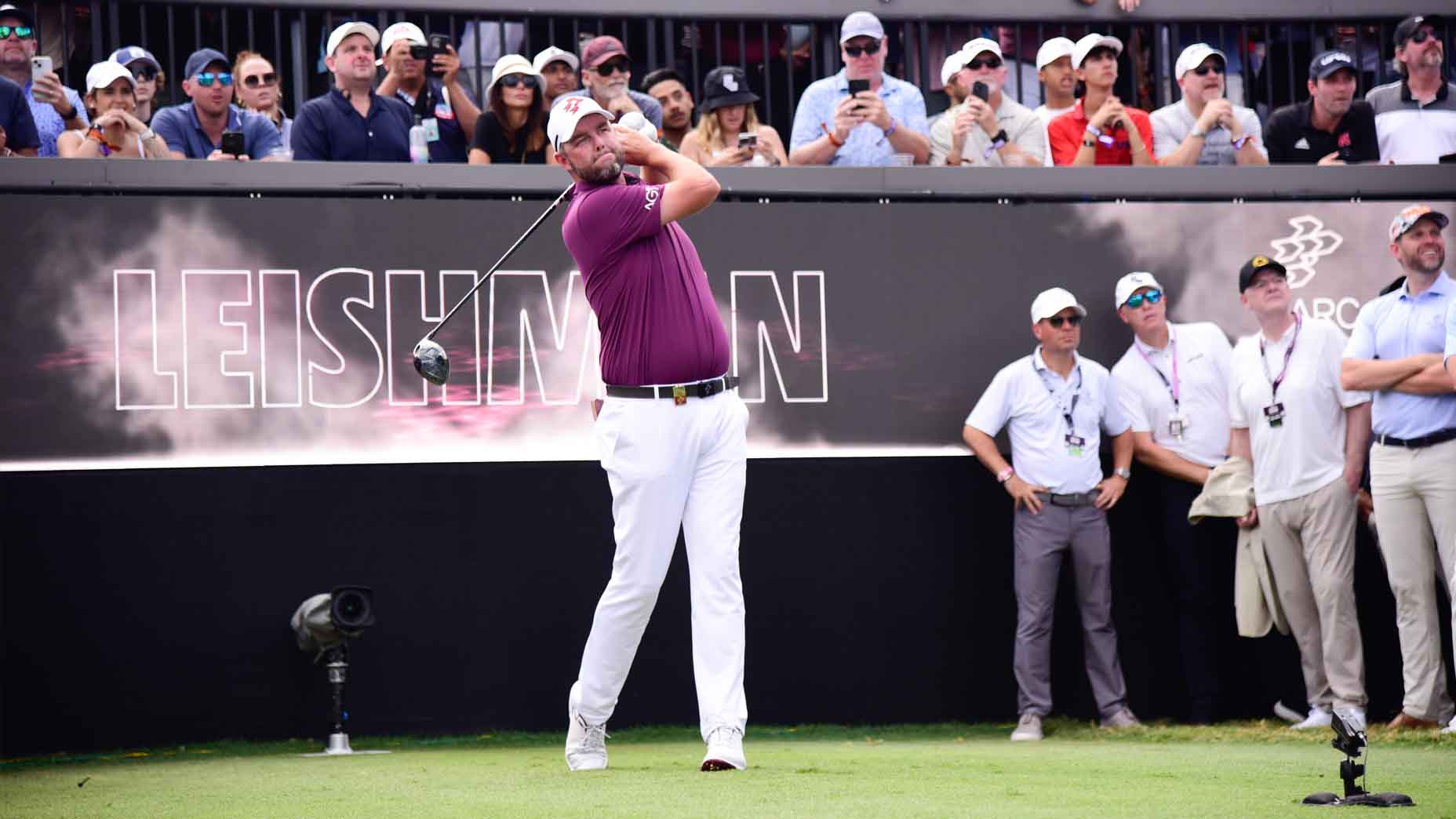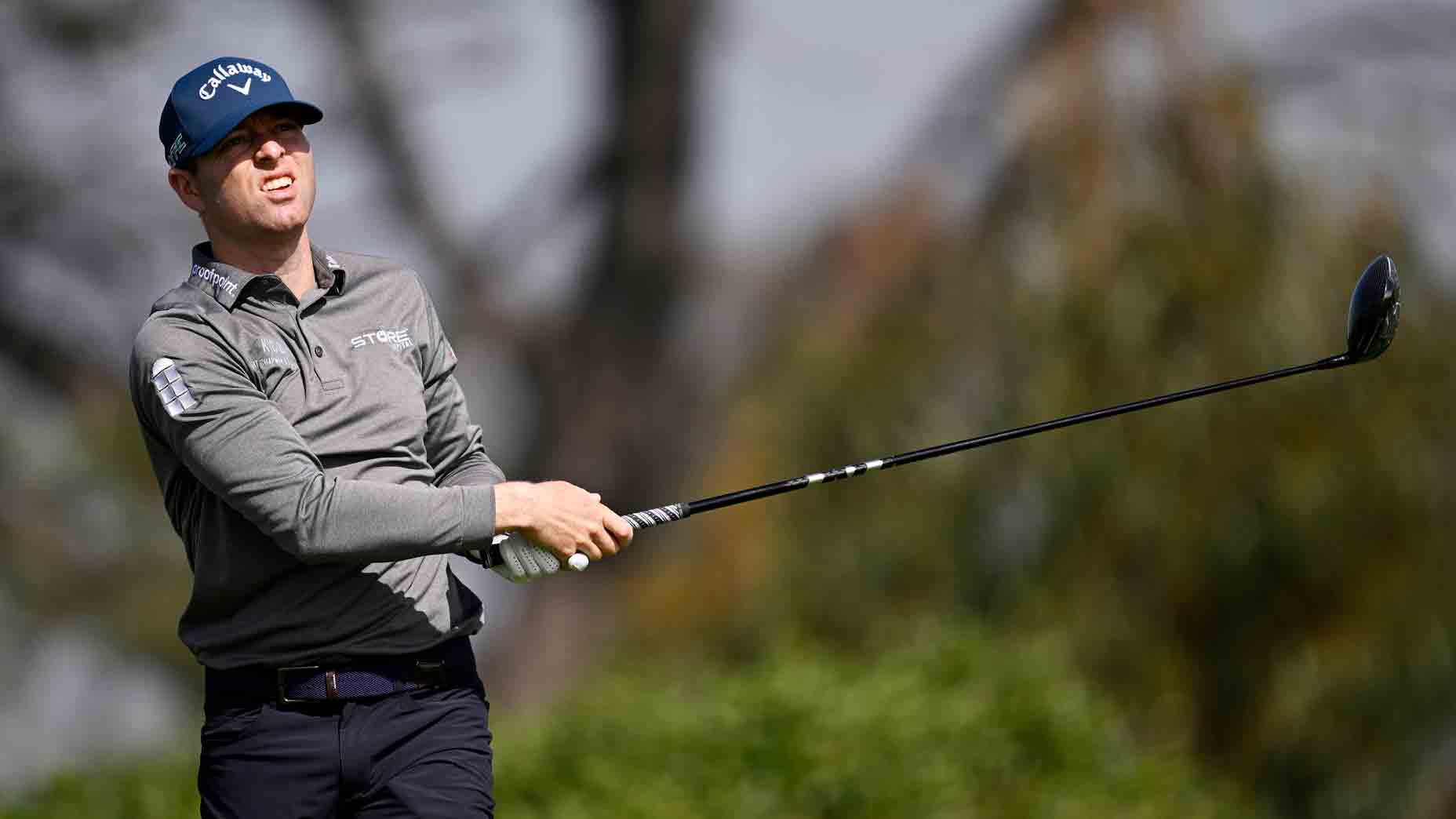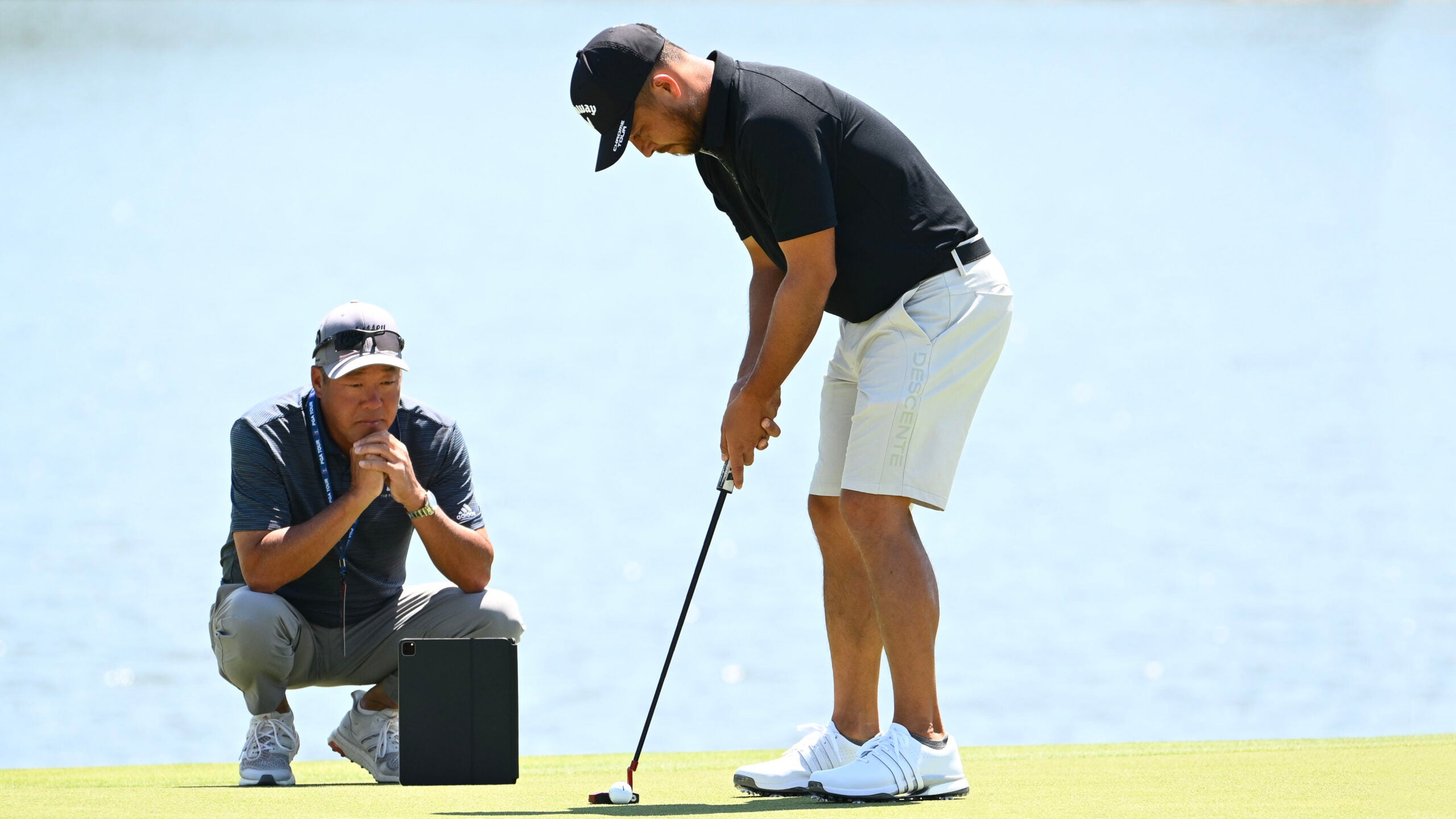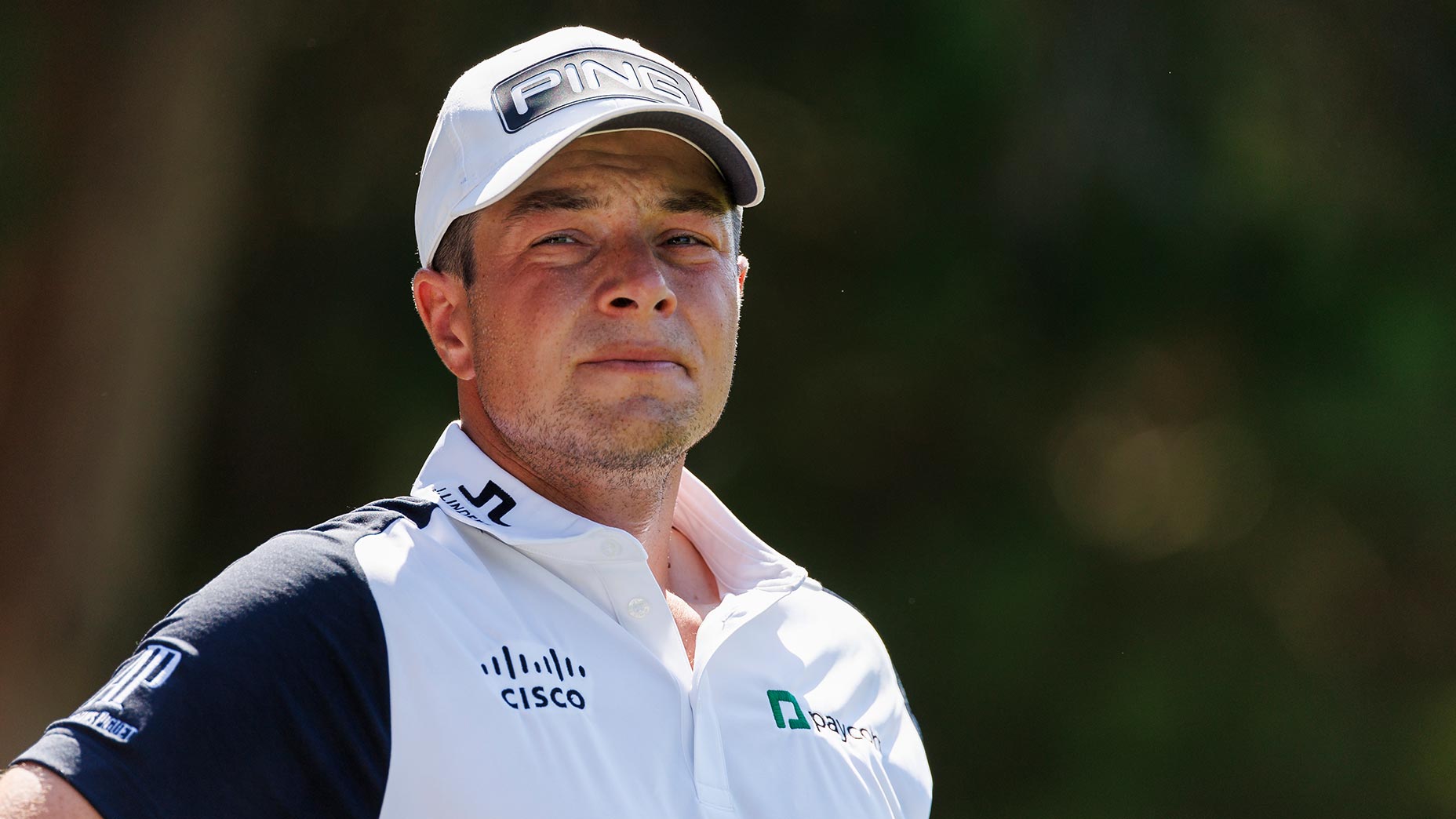Check in every week for the unfiltered opinions of our writers and editors as they break down the hottest topics in the sport, and join the conversation by tweeting us @golf_com. This week, we discuss the court battle between the PGA Tour and LIV Golf, Will Zalatoris’ breakthrough victory and more.
1. Even with a host of events around the world, this week’s biggest golf news came in a courtroom. In the first court case between the PGA Tour and LIV Golf, a federal judge on Tuesday rejected the request of three LIV golfers for a temporary restraining order that would have allowed them to compete in the Tour’s FedEx Cup Playoffs, which kicked off Thursday in Memphis. Notably, the hearing was separate from an antitrust suit filed against the Tour last week by a group of LIV golfers, alleging that the Tour is unlawfully sanctioning them for signing on with the rival circuit, and that case could start as early as the fall of next year. We’ll start generally: What was your biggest takeaway?
Judge rejects 3 LIV golfers’ request to compete in FedEx Cup PlayoffsBy: Josh Sens
Josh Sens, senior writer (@joshsens): The biggest was that the judge wasn’t buying the plaintiffs’ argument that the suspensions had caused them irreparable harm. Quite the opposite. She suggested that the LIV golfers had actually come out ahead in the deal by signing such lucrative contracts with the LIV circuit. That was the question that mattered most in the hearing, with more complicated antitrust issues getting kicked down the road. That’s the immediate takeaway. The longer term takeaway is: It seemed pretty clear from the hearing that both sides are going to have to answer some tough questions if and when this gets to court.
Dylan Dethier, senior writer (@dylan_dethier): My biggest takeaway? It was a much-needed win for the PGA Tour. The steady drip of player departures have meant that LIV has a natural advantage in the news cycle, and if LIV pros had been able to rejoin the FedEx Cup Playoffs, that would have been a real blow. This was the first week we really heard from several big-time PGA Tour players admitting just how much they wanted the defectors barred from the playoffs. Lots of having-cake-and-eating-it metaphors got tossed around. We’ll see if this little victory was a sign of things to come, but for now, it was good news for a PGA Tour that has been under siege.
Nick Piastowski, senior editor (@nickpia): A good win for the Tour, though this is just getting started. And things are going to get chippy in the meanwhile. I was drawn to this quote on Saturday by Ryan Palmer: “Yeah, the top-70 is huge because of next year … with pro-am status, CJ Cup, of course the invitationals, like you said. With the new world ranking system, that’s even more points as well. Points this week, points next week, which is huge. You know, East Lake is the ultimate goal, but BMW has a lot of perks, for sure. That’s what I love about what we do out here — there’s always somewhere to go up and there’s always something to play for. Win each week, move into the top-70, moving to East Lake. That’s what’s good about the PGA Tour is there’s somewhere to go. We’re not playing for just money. It’s great.” Why is that notable? He was followed in the interview area by Cam Smith.
2. What most surprised you about the hearing?
The winners and losers from LIV Golf’s first court battle, according to a legal expertBy: Josh Sens
Sens: That a report by LIV’s own expert economic witness wound up being used against the plaintiffs. In that report, the expert said that the Tour’s suspensions stood to take such a toll that LIV had to pay the players a ton to adequately compensate them. It was one of those arguments that cut both ways, but it ultimately cut deeper against the LIV golfers. If they’d been paid so much to join LIV, how could they rightly claim that they’d been irreparably harmed? A couple of legal experts told me that this was a pretty big blunder by the plaintiffs, but one of those experts also said that they sympathized with the LIV attorneys because “it’s hard to win an argument in court when you’ve got bad facts.”
Dethier: I think what surprised me the most was just how invested current Tour pros were in its results. I referenced this in the previous answer, but on Tuesday in Memphis a group of high-profile pros was huddled around a stream of the hearing. PGA Tour players have been resisting the Us Vs. Them narrative — until now. Battle lines have been drawn.
Piastowski: The comment from the judge where she stated something along the lines of that the LIV contracts lock up these players in ways the Tour never imagined. What the heck does that mean??
3. Is the Tour winning phase 1 of the legal battle an indication that the case will continue to lean the Tour’s way?
Confused by the first LIV golfer court hearing? It hinged on these 5 keysBy: Sean Zak
Sens: The antitrust attorneys I’ve spoken with about this say it’s too early to draw any conclusions from this hearing; I’d just be speculating. One thing that does seem clear, though: that the more successful LIV becomes — the more top players it signs, the more market share it gains, etc. — the less it can credibly claim that the Tour is operating an unfair monopoly. It’s an interesting paradox. I have no idea how it will play out in the legal fight, but the point was raised in the hearing, and I’m sure it will come up again.
Dethier: As Sens suggests, this was a positive sign for the PGA Tour but certainly wasn’t conclusive. The Tour has some angles to defend, but it also has plenty of points to prove, including my favorite: showing just how successful LIV has been as a competitor. There’s some serious irony there — LIV, which has been shouting from the rooftops about its success, now has to show it has been excluded from the marketplace, while the PGA Tour can crow about LIV’s accomplishments. What a twisted web!
Piastowski: Yes, it’s too early. But as my colleagues write above, as LIV grows, its case that the Tour is a monopoly maybe shrinks.
4. Will Zalatoris won the first FedEx Cup Playoff event on Sunday, beating Sepp Straka in a playoff to earn his first PGA Tour victory. What does the win mean for Zalatoris? And will the absence of top LIV signees ultimately hurt the playoffs in terms of fan interest?
‘What are they going to say now?!?’ Will Zalatoris wins first title in chaotic finishBy: Nick Piastowski
Sens: I don’t think many fans are feeling a painful loss at this point. What’s more notable, I think, is all the attention that has gone to rumors and reports about who might be leaving next. Those stories have generated more buzz than the competition itself.
Dethier: There was plenty of grousing throughout the week about the anonymity on the leaderboard, but what we got in the end was a terrific (and overdue) winner in Will Zalatoris, a thrilling playoff showdown and a reminder that the key to the PGA Tour is its every-week structure. We understand the stakes of a big-time Tour win, so when it’s close coming down the stretch, it’s exciting and it’s easy to contextualize. I’m glad we can move on from the when-will-Zalatoris-win storyline, because he’s good enough to be among the game’s elite, like, right now. Soon he’ll have the resume to prove it.
Piastowski: Zalatoris’ shout — ”What are they going to say now?!?” — was telling to me, albeit also a nod to Steph Curry. Though he was talking about his putting, you can tell the buildup was getting to him a bit. So to answer his question then, we’ll be wondering when the next one is coming, because there’s no reason why he shouldn’t be winning often. And no, I don’t think the playoffs will take a hit. The Tour still has its stars — and future stars like Tom Kim.
5. In an interview on Subpar, Harris English said that with LIV luring away players from the PGA Tour, the biggest key to keeping the Tour an appealing and successful product will be engaging the next generation of young stars. “We’ve got to keep the young guys here,” he said of players like Collin Morikawa, Sam Burns and Scottie Scheffler. Do you agree that’s where the focus should be?
How does the PGA Tour fend off LIV Golf? This pro has an ideaBy: James Colgan
Sens: I agree that guys like that — and other emerging talents — represent a crucial fireline where the Tour will need to make a stand. But then the question becomes, what do you do to appeal to them? Monahan has already acknowledged that the Tour can’t win a financial fight with LIV. Can it win by appealing to a sense of legacy? I don’t think that argument wins against the prospect of a few more commas in their bank balance.
Dethier: Yes. The PGA Tour has already renewed its focus on its top stars, but LIV has identified a weakness in the Tour model. There’s beauty in the meritocratic structure of the Tour, but there’s also an undeniable truth that the top players are underpaid while a legion of pros essentially unknown to the general public make well over a million bucks a year. There’s room to improve when it comes to rewarding the guys who sell tickets.
Piastowski: All good points above, and I agree. But I’ll add that there should continue to be some avenues to get to that level. I want pro golf to have a deep bench.
6. Patrick Reed, who left for LIV Golf in June, made a pair of bold claims while playing in an Asian Tour event, where he said that LIV players were “sick and tired” of hearing about money as one of the reasons a golfer would join the controversial, Saudi-backed series. He also said: “I’m ready for the LIV golfers to go ahead and play against guys on the PGA Tour. I’m pretty sure we can hold our own.” Any chance we’ll ever see a Ryder Cup-style LIV vs. PGA Tour clash?
Patrick Reed makes bold claims about LIV Golf money, level of playBy: Nick Piastowski
Sens: Funny you mention that — I was just joking to a friend the other day that they should take this fight from the courts to the course: Ryder Cup-style competition. Loser packs up its operation and goes away. I’m not advocating for that. But it would probably be the most-watched golf event of all time. And given the way public life has increasingly gone the way of a reality TV show, it would be perversely fitting.
Dethier: Isn’t this the direction the major championships are going to go?
Piastowski: Dylan took my answer. But as part of a team event? Maybe that’s Phil’s next pitch for the Match, which would be … something.
